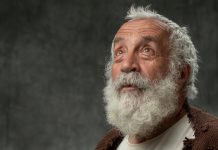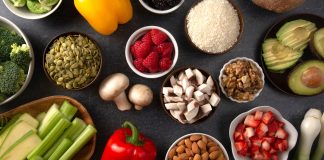Plant-based and protein-rich
The fear of protein deficiency is one of the oldest and most persistent barriers to adopting a plant-based diet.
COVID-19: Excerpt from a diary on the Great Britain front
Noemina is a graduate of the University of Hertfordshire, UK, where she majored in health care. She is working in her field as of 2012. The journal excerpt she sent to us reflects her week-long experience at the epicentre of the battle with the new coronavirus in the intensive care unit, where serious cases are admitted.
COVID-19: What we have (not) missed during the lockdown
Life in lockdown had an atypical rhythm and texture. While for some this upset their daily lives, for others it was an unexpected response to an unspoken need.
Back from the brink: A doctor’s struggle with depression
Here’s a disturbing fact: Medical doctors have the highest suicide rate of any profession. It may be uncomfortable to read that in the USA nearly 400 doctors take their life every year. So how does a physician find assistance in a system that seems to be clearly failing its own? I sat down recently with Dr Charles, a fitness enthusiast, soccer fanatic and dad, to...
Why sleep belongs at the top of your priority list
“If you had asked me that morning, ‘Arianna, how are you?’ I would’ve said, ‘Fine.’ It was really the fact that being depleted, running on empty, had become the new normal for me.”
COVID-19: Could giving up ever be the key to success?
Pray! If not to God, then to a god. Admit that we are defeated, because this is the first step towards victory.
All juiced up
I have a mentor friend at the gym who I catch up with every now and again between sets. He’s one of those massive dudes who everyone in the gym knows—his walk from the locker to the dumbbell rack consists of greeting and fist-bumping pretty much every guy on the way.
The things we suffer from are not the things that define us
At 28, the world was hers. Ellie Finch Hulme was engaged to the man of her dreams, and a lifetime of experience lay before her, like an open field in which one could run freely in any direction. Then came the diagnosis.
11 million people die each year from these nutrition mistakes
From Europe to Asia and from Africa to the Americas and Australia, none of the culinary traditions, not even those acclaimed by scientists, generate an optimal supply of nutrients. Moreover, the food we eat daily kills 11 million of us prematurely every year. So then, what should we eat?
COVID-19: How does anxiety affect us?
A global crisis situation, such as that generated by the current pandemic, is a complex picture with many variables bringing high levels of emotional distress. During a pandemic, many people will face a wide range of reactions and emotions, and the psychological impact will often be greater than the medical one.
#SELFCARE for Christians
The concept of self care—defined as the entirety of ways in which a person understands how to solve their emotional problems and manage their anxieties—has become a real movement in the past two years with an entire industry ready to make our lives easier and more comfortable. For Christians, however, this trend has proven to be quite problematic: making our lives easier is...
Between 6 and 10 years of extra life make a difference
Over the past few years, several major media outlets have been talking about the increased longevity of Adventists compared to the populations they live among (CNN, BBC, DW, NBC, CBS, ABC, CBN, National Geographic, Time, Los Angeles Times, Huffington Post, The Atlantic, etc.).
COVID-19: Why the Bible’s perspective on social distancing might be a solution
The great challenge facing the world’s leaders right now is identifying an optimal response to a disease bearing several characteristics that make it difficult to combat.
What could console our terrible fear of death?
Along with the rising death toll due to coronavirus complications, a usually latent aspect of our fear becomes harder to ignore. Despite the fact that it is the only certainty we all share, realising that our own end is a reality we might need to confront sooner than we had thought leaves many of us fervently searching for consolation.
Our daily E-numbers: an epidemic of suspicion (Part II)
The first part of this discussion essentially highlighted that, despite the alarming and catastrophic claims surrounding E-numbers, these substances are generally far less harmful than many believe. In the following section, we will examine some of the most criticised and controversial E-numbers in Romanian public discourse. Let’s begin with the one often described as “the most TOXIC/CARCINOGENIC additive”: E330.


























